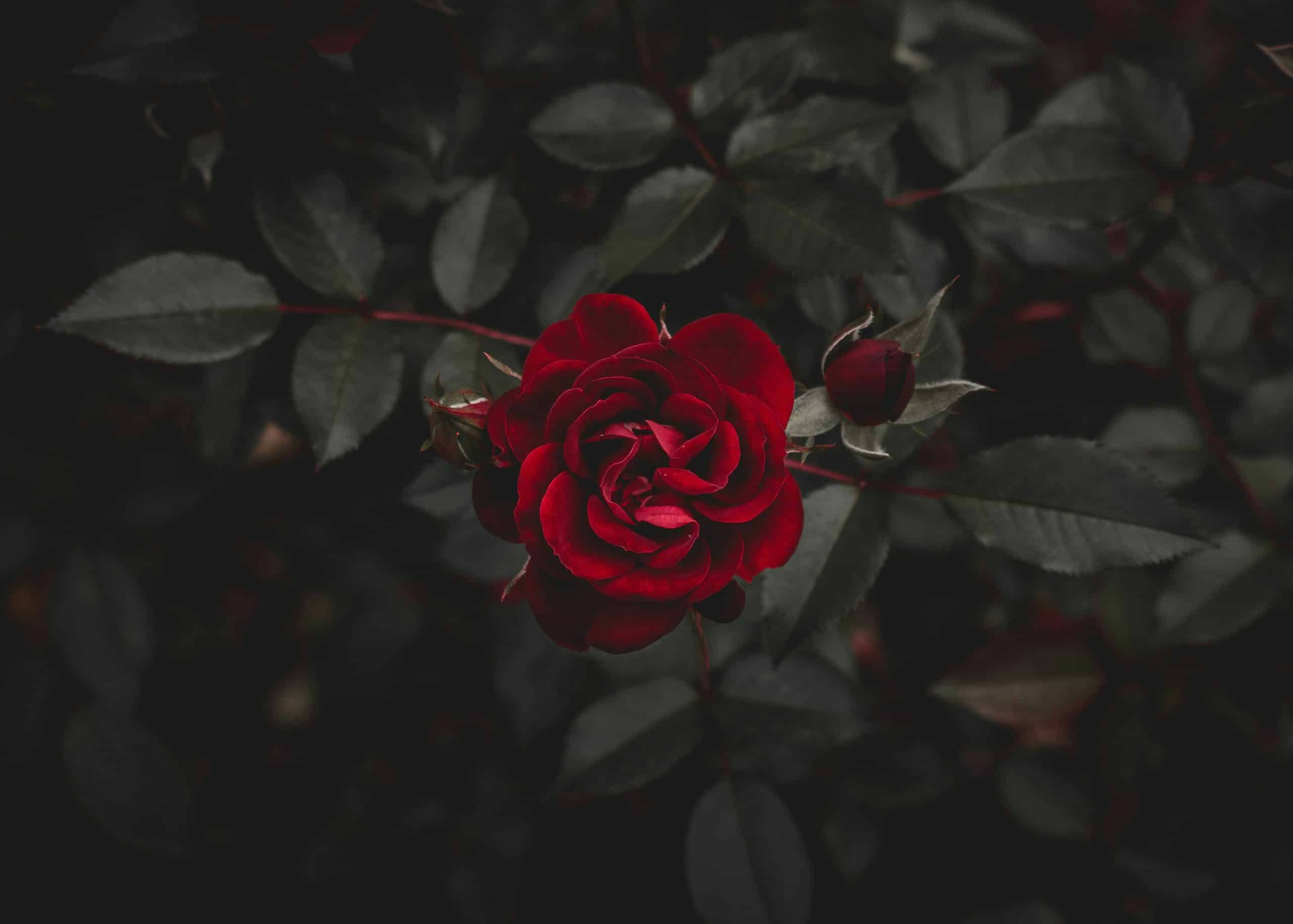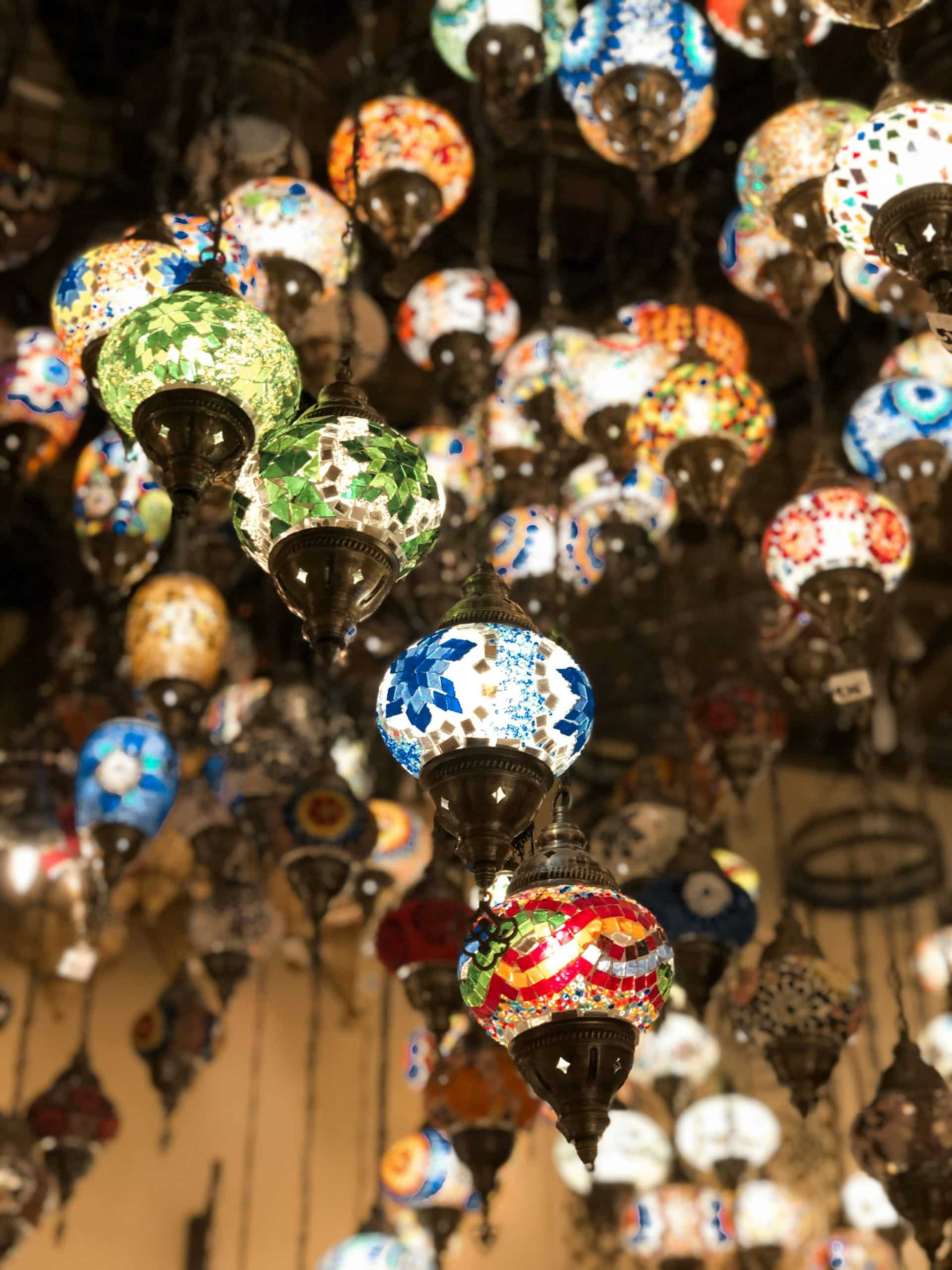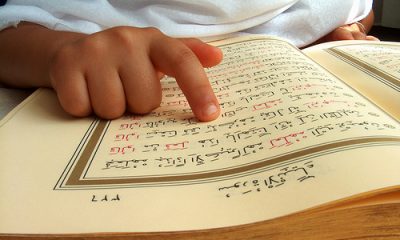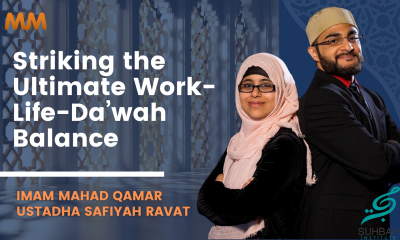#Culture
Bismillah, The Beast [Part I] – A Short Story
Published

The Prophet ﷺ said, “A woman is married for four things: her wealth, her family status, her beauty and her religion. So you should marry the religious woman, otherwise, you will lose out.” [Sahih al-Bukhari 5090]
Once upon a time in the Land of the Sunset, a merchant named Aderfi Yaqoob lived with his six children. Being a man of the market, he had high hopes that not only would his children be merchants like him, but sultans of more than souks.
Keep supporting MuslimMatters for the sake of Allah
Alhamdulillah, we're at over 850 supporters. Help us get to 900 supporters this month. All it takes is a small gift from a reader like you to keep us going, for just $2 / month.
The Prophet (SAW) has taught us the best of deeds are those that done consistently, even if they are small. Click here to support MuslimMatters with a monthly donation of $2 per month. Set it and collect blessings from Allah (swt) for the khayr you're supporting without thinking about it.
Shortly after his eldest son became old enough to hold a saw, he soon joined Souk Chouari and its carpenters. When his middle son could first hold a hammer, he rushed to be an apprentice of one of Souk Haddadine’s blacksmiths. And his youngest son, cloth in hand, was welcomed eagerly by the cobblers of Souk Smata. All three brothers began to spend longer and longer hours in their respective markets, neglecting their aging father at home, adamant that such time in the souks would be invested into their father’s security later.
Aderfi also had daughters, but they had little interest in working in the markets. Instead, they loved spending money in those markets. After their mother passed, Aderfi tried to console his eldest daughter with jewelry from Souk Dhabia and his middle daughter with perfume from Souk Attarine.
But the youngest was peculiar; she never asked for anything the way her two older sisters did. It was her father’s company that was invaluable to her, and not what he could purchase. Known for the beauty of her character and appearance, it was no surprise that she was a lady of her name: “Jameela.”

Lanterns of the souks [PC: Dario Ciraulo (unsplash)]
His daughters also received numerous marriage proposals— but for many of the same reasons. Bachelors saw the ladies as beautiful, wealthy, and related to the greatest merchant in Maghreb. Sadly, none of the men saw those ladies for their virtue. Jameela, of course, received the most proposals of all. However, she also declined the proposals more than her sisters did. With her older siblings seemingly ready to be married at any minute, Jameela instead chose to stay at home with her father for a few years more.
An Angel is Near
Then tragedy struck. Foreign soldiers took over the souks. The leather meant for Souk Cherratin was taken and adorned by the soldiers, and the carpets for Souk Zrabi laced their homes instead of those of the Amazigh. Dyes from Souk Sebbagine spilled the streets until the people surrendered.
With nothing but the clothes on their backs, Aderfi and his children fled to their country home far away from the markets. Both sets of sons and daughters lost their suitors and brides-to-be. The father became a shepherd instead of a seller, and his children chose labor in light of losing love.
They all had to remain awake before the sun rose. The men were used to a quick nap after fajr, waiting until the other people awoke to purchase their wares. But now they dragged themselves from their warm beds to herd animals, tend to the earth, and hunt predators away. The women stayed inside the home, making butter from the milk, retrieving eggs from the chickens, and feeding the animals. It was a hard life, and they all complained about it… save for Jameela. Instead of groaning like her brothers and moaning like her sisters, she recited salawat as she worked, and beamed at the cry of every rooster.
“An angel is near!” she said happily each time.
Aderfi nodded, and responded, “There is, indeed.”
A year passed. One day, Aderfi received a letter from a fellow merchant. The letter detailed that the soldiers had relaxed their regulations. Many of them had shipped goods home to their families, and wanted more. And the only one who could navigate the paths of each souk was none other than Aderfi.
He wept for joy, and proclaimed “Alhamdulillah!” His sons would have jobs again! His daughters would not suffer from breaking cookware and old clothes! All right before Ramadan. What a blessing!
Wiping away his tears, he asked his children what they wanted when he returned. His daughters answered almost immediately—a new pot from Souk Fekharine, and a copper kettle from Souk Seffarine. The brothers, staying back to protect their sisters, asked their father for similar things as gifts to their former fiances, hoping they could be convinced to return.
When it was Jameela’s turn, she, too, had to pause to rub her eyes. “Jazakum Allahu khayran,” she said. As usual, there was nothing she really wanted, other than her father’s safe return. But she looked at her siblings, who seemed ready to tease her if she refused. “If it was one thing I could never find in the souk, it was a desert rose.”
Aderfi obliged. In Marrakech, he was welcomed as an honored man by the locals. “Ramadan Mubarak!” they told him. Souk Nejjarine was full of beautiful wooden decorations, and Souk Semmarine was full of Eid gifts.
However, he quickly discovered that most of his merchant friends had also fled in fear. All of his sons’ former employers were gone, and it took Aderfi hours to convince the new sellers for a position for each one of them again. The pay was much less after occupation, as well. But Aderfi knew his sons, and they would prefer it to farm work any day.
But just as the pay was less, the prices were higher. Aderfi struggled to work out deals with the new sellers—some of them even soldiers’ wives. Scared of being accused of causing trouble, he retreated with only two gifts for his daughters.
For the second time, he left Marrakech defeated. His heart was so heavy, and his thoughts so preoccupied, that he rode through the desert without looking about him. Soon enough, he became lost. His horse, too, was unable to find his way. Terror began to consume him. He might not make it home in time for Ramadan.
The winds whipped and sand swept into his eyes, and the sun continued to sink. When it was time to pray Maghrib, he sank into sajdah, begging Allah 
A Palatial Oasis
Just when he thought there was no way for him to return home, he stumbled upon a beautiful oasis. Date palms encircled a beautiful white veranda. Bushes of jasmine and plentiful trees of tangerines seemed to open their arms towards him.
Dar al-Bayda? he wondered as he crept closer. Casablanca? No, it couldn’t be. As he led his horse to a nearby pond, he kept looking around himself in disbelief. Not a soul was present. But he knew someone had to live here, otherwise, this place wouldn’t be as well-maintained as it was.
“As-salamu alaykum!” he called as he entered the ornate veranda. No one responded. Yet everything was meticulously decorated and immaculately clean. The floors were made of tile and lofty pillars held up an intricately designed roof. A creeping sense of worry began to fill Aderfi’s mind. By all appearances, he might have stepped into a foreign soldier’s abode, and he could be arrested for trespassing.

An ornate oasis [PC: Mert Kahveci (unsplash)]
“I only mean to stay until ‘Isha. And then, I will set up camp outside,” he said aloud. Nothing but the empty air responded to him. Aderfi continued to look around at his surroundings. He was in the salon, and doubtless, there might be staff preparing for dinner. When he peered into the next room, indeed, he found a spread of food already laid out. A tajine with fresh chicken, apricots, and plums, bathed in turmeric and other spices. There were other delights around it; couscous with raisins, red onions, red bell peppers, fish chermoula, b’sarra soup, and a flaky b’stilla pastry. His mouth watered, but he returned back to the salon.
“Might I join you for your meal?” he asked aloud to his unseen host. “And then take rest for the remainder of the night? I only wish to wait until Fajr, and then I will be out of your way.”
‘Isha came, announced by a clock loitering on the wall. After he prayed, Aderfi couldn’t restrain himself, and ate to his heart’s content. The master of the house never came to join him. He promised to recompense him, and went into the nearby room—clearly made up for a guest. Covers softer than his bed in Marrakech, with thread woven by only the most skilled weaver.
Aderfi marveled at the sight. It was almost as though the master was waiting for him. A fresh djellaba and warm bathwater was prepared for him. Perhaps it was an angel? He thanked Allah 
When he awoke for fajr, Aderfi could still hardly believe his eyes. His clothes from the previous night, now clean, had been laid out on the dresser for him, and there was fresh water for him once more. He made wudhu and prayed that the master would have everything his heart desired for his kindness.
Breakfast was light, but still wonderful nonetheless. Freshly picked mint tea and baghrir pancakes, with honey, cheese, and jam to go with it.
“I wish that you would join me, kind seedee,” Aderfi said before he ate. “We are brothers; it is only appropriate that we eat together.”
No response, still. Aderfi decided to pinch himself, and—no—still not a dream. Wanting not to trouble the kind master anymore, he tidied after himself as much as possible, and went outside. His horse was still waiting at the pond, although it was clear someone had gone to care for him. He was chewing on hay and appeared freshly groomed. Sadness consumed him. A merchant being unable to pay a master; truly, there was no humiliation like this.
Just as he turned to leave, he spotted something beautiful in the garden—bushes of desert roses. They had been masked only by the other flowers. Aderfi immediately remembered his promise to Jameela, and hurriedly rushed to pick one.
A terrible roar filled the air.
The Exchange
Aderfi felt his heart leap into his chest. Bounding towards him was a great werehyena, eyes glowing with fury. As the merchant stumbled back onto his legs, screaming in fear, he saw that the werehyena wore a torn cape.
The master of the house.
“Ya Seedee—!” Aderfi cried.
The werehyena scoffed. An ugly sound; his black nostril flared and his garish teeth pulled back to show crimson gums. “I am no teacher. But you—” he said, leaning in closer, “are a thief!”
“Please,” he whimpered, “In Marrakech, I was the most famed merchant—”
“Then you would know how terrible of a thing it is to take from others!” The werehyena pulled back, snarling, his eyes two pupils of red fury. “A merchant who steals. Ha! And I thought I had experienced everything there was in this world.”
“Seedee, I swear by Allah—”
“Enough of your lies and smooth talk! I know what you think of me. Foolish merchant, you flatter your customers in the hopes that they are generous to you. Call me how you see me. A beast. Now beg, and with sincerity this time.”
“I only thought of giving this to my daughter, not myself! If I could give back all of your kindness in exchange for this one rose, I would do so. You have been so merciful to me—”
“Indeed, I regret it.” The werehyena stood on its hind legs, towering above Aderfi, searching his eyes for any sort of sincerity. “Well, it should only be fair, then, that you should live to see her enjoy it—along with other roses, yes?”
Aderfi, dumbfounded, nodded.
“Bring her to me. That is your exchange.” Then the werehyena snorted. “And I swear by Allah… I can track down any scent. Should you disagree with our deal, our bargain will be replaced with you instead.” Another snort. “Take this compass with you, with your daughter’s name in your heart, and it will show you where she is.”
Horrified, Aderfi glanced at the compass. It began to adjust its true north and pointed in the direction of his home. He rode filled with dread, knowing that his return to safety would mean her doomed captivity.
It was ironic, then, to have his sons welcome him with great hugs and his daughters with kisses. With trepidation, he announced to the sons of their new positions of work under occupation. They groaned, but said alhamdulillah for the improvement of their fortune. Aderfi’s daughters responded in an opposite manner, enthusiastic at the sight of their gifts, and forgetting their father.
For Jameela, though, it was as though she had received a chest of gold. “Ma sha Allah,” she said in awe at the desert rose. She pressed it to her nose and inhaled deeply. “It’s beautiful. Jazak Allahu Khayran, Baba!”
At the sight of his beautiful daughter enjoying freedom for the last time, Aderfi burst into tears. “Ya binti,” he wept. “This was the most expensive gift of them all.” He then told his children everything that had happened on the mysterious veranda. His daughters could hardly believe him, but, ready to get rid of their sister (whom they had never been very fond of to begin with), cried crocodile tears. The brothers, in similar disbelief, thought their father was merely showing signs of age. Jameela, though, was quiet and contemplative.
“Alhamdulillah,” she said. “Our father found a way out from his predicament, and I am able to go in his stead. He can spend Ramadan in his home and not in captivity. Baba, let us go quickly. We should not fast from food while being unable to keep our promises to others.”
“Don’t leave!” her sisters wept, the corners of their mouths twitching with hypocrisy. “Our precious, beloved sister!”
“Yes, Baba, let us go with you!” His sons urged. “We shall slay that beast!”
“No,” Aderfi asserted. “You must stay and watch your sisters—”
“And I will stay by your side. I will follow you whenever you leave.” Jameela left immediately to pack her things and those of her father’s. He knelt quietly at his majlis, too stricken to speak.
Aderfi didn’t sleep well that night, but there was nothing that could be done by the time the sun rose. He and Jameela set off towards the veranda, with fear of the beast in their hearts. Their only comfort was the hilal that shone above them, marking the first night of Ramadan.
Upon their arrival, the veranda was empty. Aderfi thought, at first, that the beast had died. But as he wandered through the salon, the guest room, and the dining room, he found that it was all as he had encountered before. As though the house were being prepared for someone to visit.
“Ya Seedee,” he called out. “I have brought my daughter as part of our agreement. Have mercy on her and show her the same kindness you showed me. I beg of you.”
From the darkness of the room, the werehyena responded. “I have eyes, thieving merchant. Go, enjoy your meal with your daughter. It will be your last.”
The two of them ate quietly at another marvelous spread for dinner, though neither had much of an appetite. Both retired, and Jameela found that her room had been elaborately adorned. Not a single wall was uncovered; there were bookshelves filled from ceiling to floor and the most exquisite Arabic calligraphy she had ever seen. Finely-crafted lanterns were scattered all around.
The bed was the most comfortable she had ever slept in. Jameela dreamt that she was crowned the sultana of Al-Maghreb. At suhur, she told her father her dream. He succumbed to emotion; it was what he always wanted for his children.
At last, the time came for her to bid farewell to her father. Both of them cried; she on her father’s chest and him on her shoulder.
“It’s not too late for me to stay in your stead, Jameela,” he whispered. “Let this Ramadan be my last. You have many more to look forward to.”
But Jameela shook her head and fought back more tears. He rode back out in the desert, and when Jameela turned around again, she found the werehyena just a few inches away.
“Bismillah,” she exclaimed. “The beast!”
***
[to be continued…]
Related:
Keep supporting MuslimMatters for the sake of Allah
Alhamdulillah, we're at over 850 supporters. Help us get to 900 supporters this month. All it takes is a small gift from a reader like you to keep us going, for just $2 / month.
The Prophet (SAW) has taught us the best of deeds are those that done consistently, even if they are small. Click here to support MuslimMatters with a monthly donation of $2 per month. Set it and collect blessings from Allah (swt) for the khayr you're supporting without thinking about it.
Hannah Alkadi is a lawful good social media master, cat mom, and total nerd. She began writing in the pixels of online threads with friends since she was 13. Now, she continues in the pages of essays, short stories, and poetry. Her work has been published in Amaliah and Muslim Youth Musings by the grace of Allah ﷻ.


“What Did You Just Say?”: A MuslimMatters Open Letter Series I Dear Avi Benlolo

[Podcast] How to Fight Islamophobia | Monia Mazigh

Little Bayramgul – A Short Story

Why Your Kids Should Not Be Huffadh

Cancer, Mum, & Me: A Story of Hardship and Ease

The Things He Would Say – [Part 2]

‘Afraa’ and Yawm al-Khulayf: A Cinderella Story

Why Your Kids Should Not Be Huffadh

Experiences, Lessons, And Reality Checks From Hajj 2024

Emotional Self-Healing: Lessons From The Quran And Sunnah

IOK Ramadan: The Importance of Spiritual Purification | Keys To The Divine Compass [Ep30]

IOK Ramadan: The Power of Prayer | Keys To The Divine Compass [Ep29]

IOK Ramadan: The Weight of the Qur’an | Keys To The Divine Compass [Ep28]

IOK Ramadan: Families of Faith | Keys To The Divine Compass [Ep27]










Nasreen
April 30, 2024 at 3:59 AM
Beauty and the beast lol?
Anonymous
April 30, 2024 at 12:16 PM
Salam!
When will part two come
Soo curious
Hannah Alkadi
April 30, 2024 at 1:17 PM
Wa ʿalaykumussalam! It’ll be scheduled for publication very soon. Thank you for your curiosity!
Hannah Alkadi
April 30, 2024 at 1:17 PM
You got that right :)
Shoaib
May 6, 2024 at 10:44 AM
Thank you for the interesting story. Looking forward to part 2
Hannah Alkadi
May 6, 2024 at 4:10 PM
Jazakum Allahu khayran, Shoaib! Part II just came out today. Check the front page, inshaʾAllah!